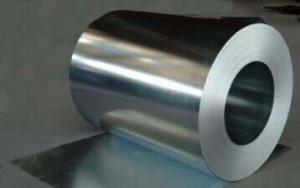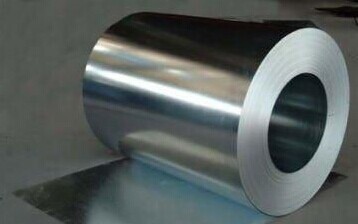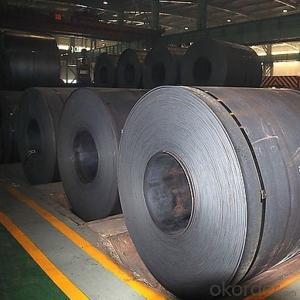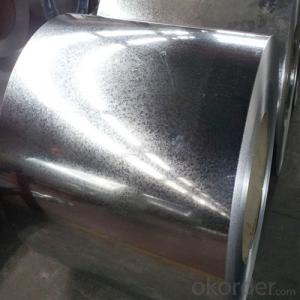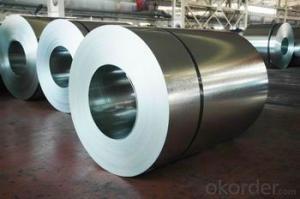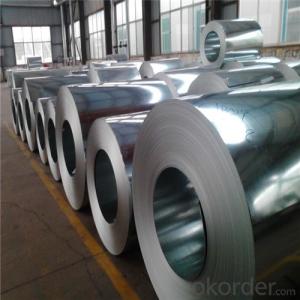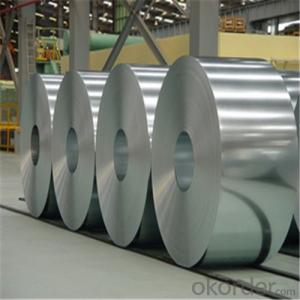Hot-Dip Galvanized Steel Coil High Quality
- Loading Port:
- Shanghai
- Payment Terms:
- TT OR LC
- Min Order Qty:
- 50 m.t.
- Supply Capability:
- 10000 m.t./month
OKorder Service Pledge
OKorder Financial Service
You Might Also Like
1. Hot-Dip Galvanized Steel Coil Description:
Hot-dip galvanized steel coil are available with a pure zinc coating through the hot-dip galvanizing process. It offers the economy, strength and formability of steel combined with the corrosion resistance of zinc. The hot-dip process is the process by which steel gets coated in layers of zinc to protect against rust. It is especially useful for countless outdoor and industrial application.
2.Main Features of the Hot-Dip Galvanized Steel Coil:
• Excellent process capability
• Smooth and flat surface
• Workability, durability
• Excellent heat resistance performance
• High strength
• Good formability
• Good visual effect
3.Hot-Dip Galvanized Steel Coil Images
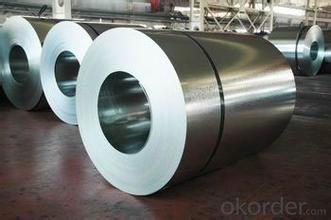
4.Hot-Dip Galvanized Steel Coil Specification
Standard: AISI, ASTM, BS, DIN, GB, JIS
Grade: SPCC, SPCD, Q195, DX51D
Thickness: 0.15-5.0mm
Model Number: coil
Type: Steel Coil
Technique: Cold Rolled
Surface Treatment: Galvanized
Application: Container Plate
Special Use: High-strength Steel Plate
Width: 600-1250mm
Length: depends
commodity: hot dipped galvanized steel coil
technique: cold rolled
thickness: 0.15-5.0mm
width: 600-1500mm
surface treatment: galvanized
zinc coating: 50-275g/m2
coil weight: 3-7 tons
coil ID: 508/610mm
spangle: zero spangle, regular spangle, small spangle, big spangle
payment term: by L/C or T/T
5.FAQ of Hot-Dip Galvanized Steel Coil
What’s the application of this product?
There are many applications for this product. For example, roofing, cladding, decking, tiles, sandwich walls, etc.
What’s the coating composition of Hot-Dip Galvanized Steel Coil?
The coating composition is 55% aluminium in weight ratio, 43.4% zinc, and 1.5% silicon, with excellent corrosion and heat resistance performance.
- Q: I noticed a friend's appliances are not magnetic, and mine are. Both are stainless steel. Are there two types of stainless steel or something? Thanks
- Some stainless steel are magnetic and some aren't. The real high grade stainless steels aren't magnetic.Stainless is just regular steel with varying degrees of nickel and chromium alloys mixed in the batch. The more nickel and chromium the less likely to be magnetic. A lot of stainless exhaust pipes and barbecue grills claim to be stainless, and yet they still rust and tend to be magnetic. They must use the bare minimum of nickel and chromium in the melted batch just to claim the title of stainless steel. Nickel and chromium are quite expensive and they are what gives the steel the anti-corrosion and extreme hardness characteristics along with loss of magnetism of the steel. If you have stainless steel that is magnetic , it is a good sign it is stainless steel that barely meets the criteria of true stainless steel.
- Q: What are the main applications of steel coils?
- The main applications of steel coils include manufacturing of automobiles, construction materials, appliances, machinery, and various industrial sectors. They are also used in the production of pipes, tubes, roofing, and packaging materials.
- Q: How are steel coils used in the food processing industry?
- The food processing industry commonly uses steel coils for various purposes. One primary use is in the production of food packaging materials like cans and containers. These coils are transformed into thin sheets or strips and then shaped and sized for packaging different food products. Steel coils are also utilized in manufacturing equipment and machinery used in food processing plants. This includes crucial machines like conveyors, mixers, and slicers, which enable efficient and automated food processing. Steel's durability and strength make it an ideal material for these types of equipment, as it can withstand heavy usage and maintain its structural integrity. Additionally, steel coils are used in constructing storage and refrigeration facilities within the food processing industry. These coils are transformed into durable and insulated panels that create walls and ceilings in cold rooms, freezers, and warehouses. Steel's excellent thermal properties help maintain the desired temperature and prevent spoilage of perishable food items. Moreover, steel coils are employed in the production of cooking and baking equipment, such as ovens and grills. These coils are transformed into heating elements that provide consistent and efficient heat distribution during the food preparation process. This ensures that food is cooked or baked evenly, resulting in high-quality and delicious products. Overall, steel coils play a crucial role in the food processing industry by providing necessary materials for packaging, equipment, and infrastructure. Their strength, durability, and thermal properties make them a preferred choice for various applications within this industry, ensuring the production of safe and high-quality food products.
- Q: PLS tell me all Foam Steel Characteristics and use?Thanks
- Foam steel [often steel foam] is used in applications that require light weight but high rigidity and strength. Watertight doors on modern ships are often made of foam steel. Pressure doors on aircraft are possible uses. As we keep striving for lighter weights in cars, foam steel might have some useful applications in bodies. There is a technical paper online that is in .pdf format that has a good discussion of the process and characteristics of foam steel.
- Q: What is the average width tolerance for steel coils?
- The average width tolerance for steel coils can vary depending on the specific requirements and standards set by the industry. However, a common range for width tolerance in steel coils is typically around ±0.005 to ±0.030 inches.
- Q: How are steel coils packaged for shipment?
- Steel coils are typically packaged for shipment by being tightly wound and secured with steel bands or straps. They are often placed on wooden skids or pallets to provide stability and protection during transportation. Additionally, protective covers or sheets may be used to shield the coils from moisture and other potential damages.
- Q: How are steel coils used in the production of furniture components?
- Due to their strength, durability, and versatility, steel coils are frequently utilized in the manufacturing of furniture components. These coils, crafted from high-quality steel, undergo a process of uncoiling before being fed into a machine known as a stamping press. Within the stamping press, a die is employed to shape and cut the steel coil into various components necessary for furniture production, such as chair frames, table legs, or brackets. The utilization of steel coils facilitates the mass production of furniture components with uniform dimensions and exceptional accuracy. The robustness of steel guarantees that these components can withstand heavy loads, providing stability to the furniture. Additionally, steel coils possess the ability to be effortlessly molded into diverse shapes and sizes, enabling the creation of a vast array of furniture designs. Furthermore, steel coils are frequently subjected to protective treatments or coatings, such as paints or galvanization, in order to enhance their resistance to corrosion, moisture, and wear. This ensures that the furniture components possess a longer lifespan and retain their aesthetic appeal over time. In conclusion, the presence of steel coils plays a vital role in the production of furniture components, as they offer strength, durability, and versatility. They enable the mass production of precise and consistent components, while their protective coatings guarantee the durability and quality of the final furniture products.
- Q: what is the refining process doing to raw materials in steel
- As Mr. Perfessor says, refining raw steel involves a lot of purifications of the raw steel; and to expand a bit, these refining processes also add corrosion-resistances to certain graded steels, and durability factors, when heat-tempering processes are used. All of these refining processes, and coating processes help steel products last when exposed to moistures, salts, and other corrosive conditions that steel can be exposed to, whether the steel is in open-air/water/space, embedded in concretes and other masonry products, or part of a protective barrier system in power plants, engines, etc. Hope this also helps; the eggster.
- Q: How are steel coils used in the production of wind turbines?
- Steel coils are used in the production of wind turbines to construct the tower and support structures. The coils are shaped and welded to create the tower sections, providing strength and stability to support the turbine's blades and nacelle. Additionally, the coils are also used to create the structural components, such as the base, for the turbine. Overall, steel coils play a crucial role in the manufacturing process of wind turbines, ensuring their durability and structural integrity.
- Q: I have a steel string, Yamaha acoustic guitar that I am learning to play at home. But at school I use a rented nylon string guitar. I like the feel of the nylon strings better then the steel strings and i was wondering if i can just switch strings or if i should just get another guitar. Can anyone help?
- No, okorder /... You will want a full size or possibly a 3/4 size guitar. A 3/4 size guitar is a little smaller and will be closer in neck width to a steel string guitar. I used one like that when I started out playing when I was young. Avoid the cheap ones on Amazon that only cost $30-$50.
Send your message to us
Hot-Dip Galvanized Steel Coil High Quality
- Loading Port:
- Shanghai
- Payment Terms:
- TT OR LC
- Min Order Qty:
- 50 m.t.
- Supply Capability:
- 10000 m.t./month
OKorder Service Pledge
OKorder Financial Service
Similar products
Hot products
Hot Searches
Related keywords
